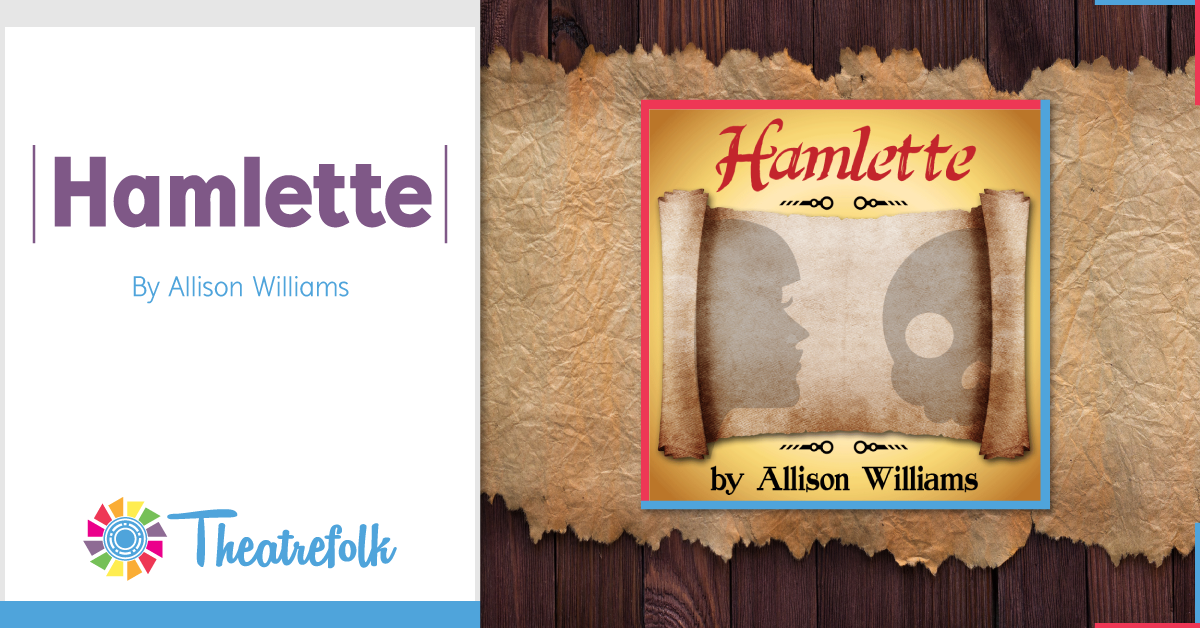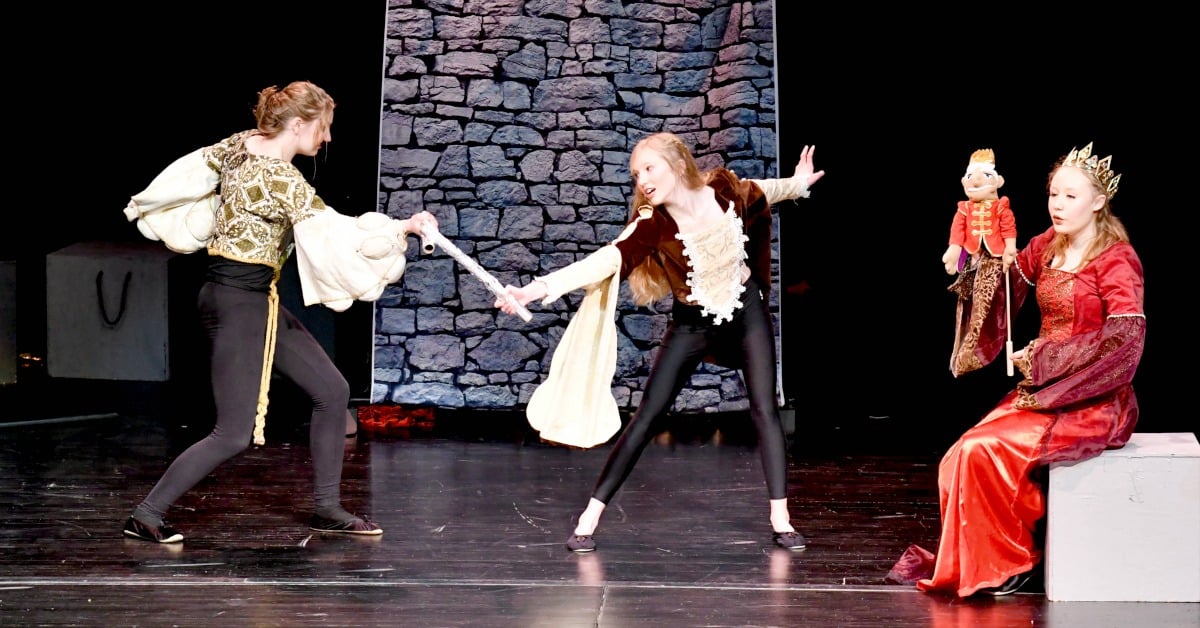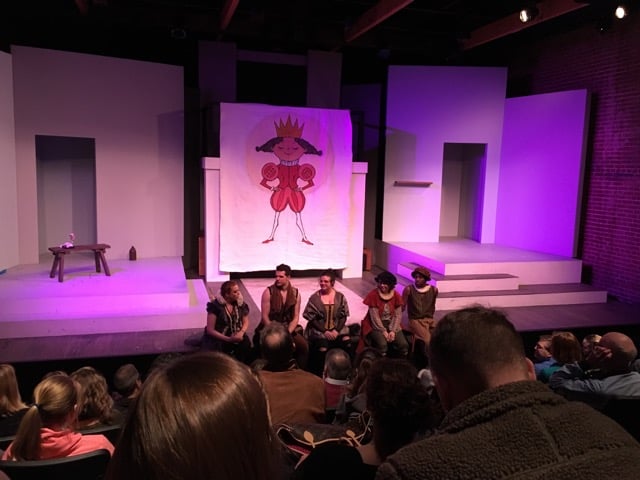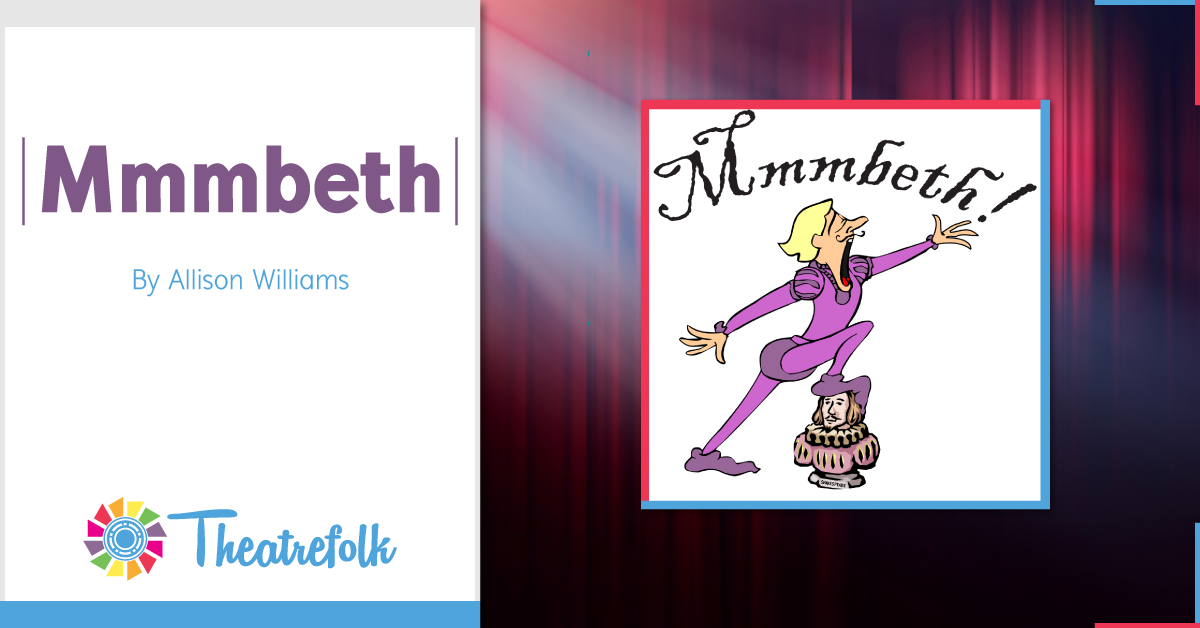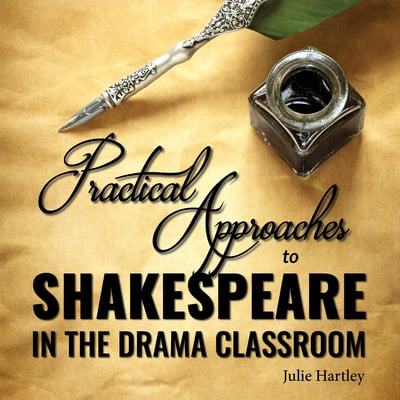Agatha Rex by Lindsay Price is a bold high school take on Antigone - packed with heart, conflict, and a powerhouse ensemble. One girl. One stand. One huge risk. *NEW COMPETITION VERSION AVAILABLE!*
Theatrefolk Featured Play – Hamlette by Allison Williams
Welcome to our Featured Play Spotlight. Hamlette by Allison Williams is a fantastic competition piece for student performers that takes Shakespeare and turns it on its ear.
Imagine if you will that “Hamlet” was not “Hamlet” at all, but “Hamlette” – a woman!
This play is a twisty-turny interpretation of the classic Danish tale. Why spend four hours telling the story when five actors can get the job done in thirty minutes?
Elsinore has never been this funny!
Why did we publish this play?
We first published Hamlette in 2001 and we’ve been a fan of Allison’s work ever since. She knows how to twist Shakespeare into a pretzel and make you look at the text in a new light. For example, what if Hamlet was played by a girl? Turns out it fares quite well and not only that, Hamlette takes 30 minutes to tell the story instead of four hours. Love it!
Let’s hear from the author!
1. Why did you write this play?
I first wrote Hamlette for a cast of apprentice performers at the Bay Area Renaissance Festival. I needed something short, that an audience would find funny enough to sit and watch for 30 minutes in the hot sun.
2. Describe the theme in one or two sentences.
What Hamlette is about, in a lot of ways, is insisting on one’s own identity. Not just in terms of gender, but the idea that young people are at a time to “try on” different identities and explore who they really are. Often, parents dismiss this as “going through a phase” (as Gertrude does to Hamlette!) but I think it’s valuable to experience different ways of relating to one’s peers, different interests and hobbies, and it builds empathy for others, even the groups we end up not staying part of.
3. What’s the most important visual for you in this play?
I just love the Laertes/Ophelia switch, and what a fun moment that is for the actor to whip around and do a completely different characterization.
4. If you could give one piece of advice for those producing the play, what would it be?
Talk slower and pick up your cues faster. This feels like a contradiction, but comedy is all about timing, and it’s important for actors to react quickly, but speak distinctly and while being in their moment. With comedy, if you miss a cue, it looks like someone forgot, where in drama you can pass it off as a moment of deep thought.
5. Why is this play great for student performers?
Because it’s a small cast and a short play, it’s easy to rehearse in a class period. Plus, Hamlette’s concerns are so identifiable: I’m not happy about my parent remarrying, I’m sad someone died, I think my significant other is insincere, I’m worried my best friend is going to betray me, I keep getting advice from adults who don’t know me very well. Totally the student experience.
Related Articles
Practical Approaches to Shakespeare in the Drama Classroom
by Julie Hartley
Shakespeare is one of the greatest resources a drama teacher can have. But teaching it can be a challenge. Practical Approaches to Shakespeare in the Drama Classroom helps drama teachers break down the Bard to make his themes, language and characters accessible to all.
Script Bundle - Shakespeare plays
A selection of 10 Shakespeare perusal scripts. Whether it's a cutting that uses the original text, a monologue or scene book, or a parody that spoofs the story, these plays offer a great window into Shakespeare's world.
